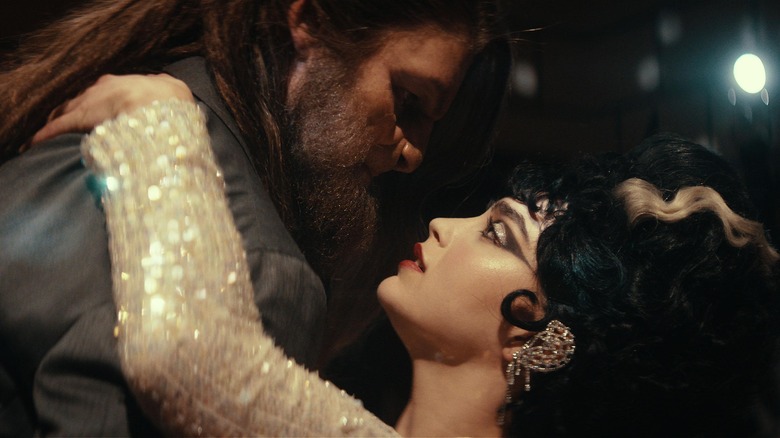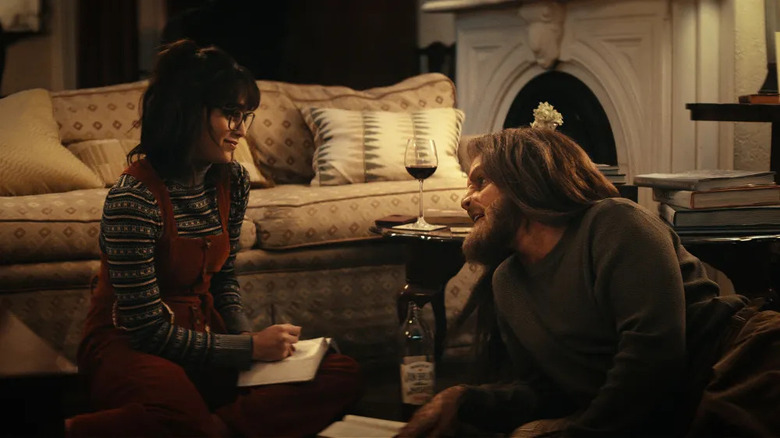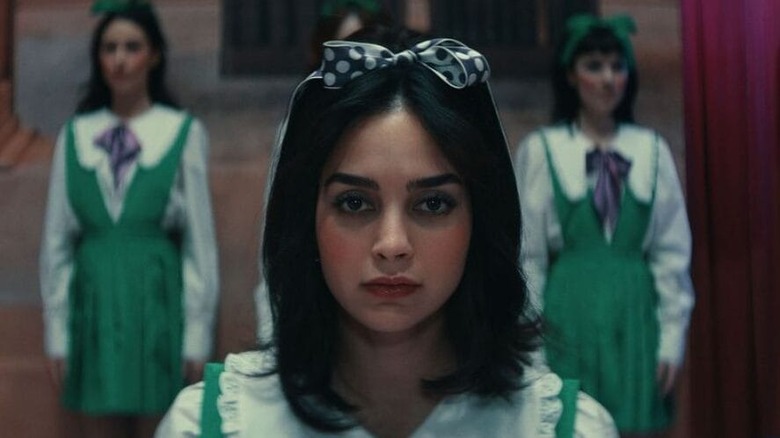Your Monster Review: A Wickedly Romantic, Funny And Subversive Twist On A Fairy Tale Trope [Sundance]
Traditionally, the concept of "the monster under the bed" (and/or the closet, as the case may be) is seen as a universal childhood fear, the most prominent example of our collective primal fear of the dark. For boys and young men, this mythical creature is typically seen as something to conquer, to stand up to. As fantasy, horror, and genre fiction continue to mutate into phases of postmodernism, this trope has expanded, where the monster isn't necessarily a threat to be subdued but rather a secret, special friend (witness 1989's "Little Monsters," as one example).
But what does this creature signify for girls and young women? If the horrific version represents the encroaching world of the patriarchy, might a cuddlier version see such a creature take the form of a confidant, companion, and protector? Where would he (assuming they're male) fit amongst the horror movie trope of survivor women being "paired" with their supernatural counterpart — is there something between "La Belle et la Bête" and "A Nightmare On Elm Street's" Freddy Krueger taunting "I'm your boyfriend now, Nancy?"
Writer and director Caroline Lindy's debut feature, "Your Monster," attempts to reconcile the young woman/fairy tale creature trope by embracing it literally and figuratively. In so doing, Lindy doesn't just make a fun genre mash-up of a film, blending together comedy, fantasy, romance, horror, and musical theatre, but uses the movie's genre elements to tell a subversively wicked story of suppressed emotions, and what can result when those feelings aren't kept behind a closet door.
Me + my shadow
The titular Monster of "Your Monster" doesn't emerge for any arbitrary reason. In a wonderfully wry opening sequence that perfectly sets the film's tone (it's set to "Put On a Happy Face" from "Bye Bye Birdie"), we're introduced to struggling Broadway actress and songwriter Laura (Melissa Barrera), who's just getting out of the hospital after having had surgery to try and stop the spread of cancer. During her hospital stay, her boyfriend of several years, actor and director Jacob (Edmond Donovan), broke up with her, leaving her involvement with the musical the couple had created together in doubt, especially concerning the leading role she'd been promised. After being literally dropped off at her unoccupied childhood home by her supposed best friend, fellow actress Mazie (Kayla Foster), Laura's life is reduced to crying, eating, and more crying.
One dark and stormy night, however, she hears an odd thump in her bedroom closet and finds Monster (Tommy Dewey) waiting there. Explaining how he'd quietly lived in the house for years after Laura moved in with Jacob and Laura's mother spent less time there, he issues Laura an ultimatum: move out in two weeks. As the at-odds roommates do their "Odd Couple" schtick (unsurprisingly, Monster is a bit of an id-driven slob), Laura shows up uninvited at the auditions for her and Jacob's musical, a play set in a girls' finishing school entitled "House of Good Women." She's given a perfunctory role as the lead's understudy and a place in the Ensemble; the leading part written for her goes to a famous TV actress (Meghann Fahy) instead.
Hurt, humiliated, and deeply lonely, Laura begins to develop a friendship with Monster, as the two bond over double features of "Night of the Living Dead" and "Royal Wedding" while reciting Shakespeare monologues to each other. After it appears that the unrepentant Jacob is already stepping out with his new leading lady, Laura and Monster fall into a romance, paying off Monster's swarthy makeup design that's a dash of "Teen Wolf" and a dollop of Ron Perlman's 1980s "Beauty and the Beast" TV series. With all of this, "Your Monster" has the makings of a delightful fantasy rom-com.
The beast within
"Your Monster" would be a slight but winning film if it merely stopped there, allowing Monster and Laura to become a couple and get one over on the egotistical Jacob. Yet Lindy isn't interested in making a syrupy film; inspired by her own life experience, "Your Monster" delves into thornier issues. The movie explores the way relationships in the art world (romantic and otherwise) can be positively or negatively misconstrued, the way romantic feelings for someone else don't turn off like a light switch even after they've treated you atrociously, and the disturbingly surreal feeling of being a young person struggling with a life-threatening disease (something this writer has personal experience with).
All of this may be too much for the film to bear were it not for the deft tonal control Lindy has over it, and Barrera's performance is the glue that holds it all together. While the cast of "Your Monster" all bring something wonderful to the table, this is Barrera's movie, and deservedly so: she not only proves herself adept at being a Diane Keaton-esque rom-com lead, but makes Laura believably downtrodden. Her performance allows the film to focus tightly on the major theme of repression, where Laura's failings have less to do with ability and more to do with keeping her emotions pent up.
That theme is part and parcel of the film's play-within-a-movie, in which a repressed finishing school girl rebels against the patriarchal system she's trying to fit into. While only a few of the show's musical numbers are performed, the final number is a show-stopper along the lines of "And I Am Telling You I'm Not Going" from "Dreamgirls" with a horror twist. It's a twist you may or may not see coming, and how you see "Your Monster" will greatly depend on how oppressed or repressed you feel; if you're privileged enough to let your monster out often, the film may seem a little too obvious. For those of us who feel wronged, held back, or otherwise unfulfilled, "Your Monster" is just the type of sly, clever, and passionate movie you'll want to open the closet door for.
/Film Rating: 9 out of 10


